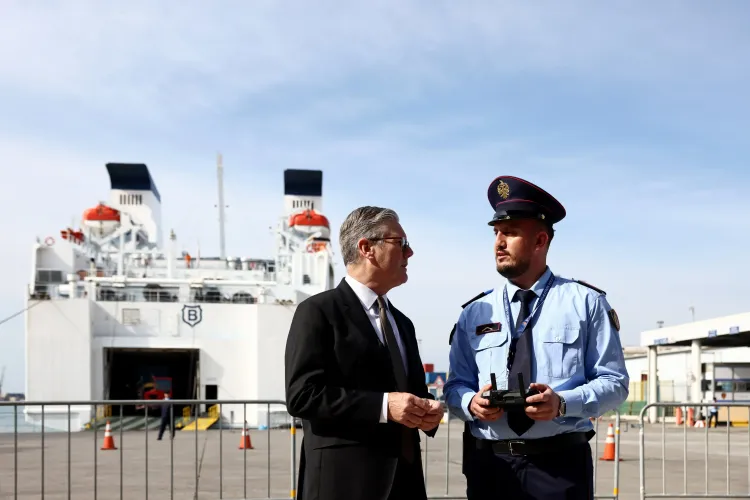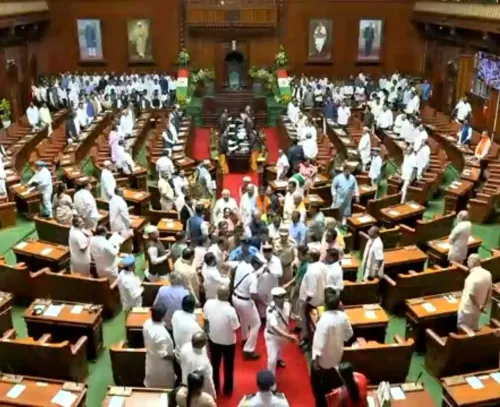Is the UK Collaborating with Other Nations to Establish 'Return Hubs' for Asylum Seekers?

Synopsis
Key Takeaways
- The UK is in talks with several countries to establish 'return hubs'.
- This initiative aims to manage failed asylum seekers more efficiently.
- Collaboration with Albania highlights the importance of international partnerships.
- Stricter immigration policies are being introduced.
- The residency period for permanent settlement has increased from five to ten years.
Tirana, May 15 (NationPress) The British Prime Minister Keir Starmer announced on Thursday that the United Kingdom is engaged in discussions with multiple nations to create 'return hubs' for unsuccessful asylum seekers pending their deportation.
“We are currently conversing with several countries about the establishment of return hubs. I consider these to be a significant innovation,” Starmer stated during a press conference with Albania's Prime Minister Edi Rama during his inaugural official visit to Albania.
Later, he utilized his social media platforms to emphasize that the UK would collaborate with Albania to deter, detect, and return illegal migrants.
“By joining forces with Albania, we will deter, detect, and return illegal migrants. Addressing illegal migration abroad and dismantling the gangs at the source contributes to safer streets and alleviates pressure on public services. This is my Plan for Change in action,” Starmer shared on X.
The office of the British Prime Minister pointed out that, as a component of an enhanced strategic partnership, Starmer and Rama are poised to strengthen efforts against people smuggling, assist victims of human trafficking, and ensure that Albanians who are deported do not attempt to return.
“Global issues necessitate collaborative solutions, and the initiatives undertaken by the UK and Albania are yielding security for working individuals in both nations. Our joint efforts to deter, detect, and return illegal migrants further demonstrate that proactive measures to protect British shores and secure our borders are the appropriate strategy,” Starmer remarked.
“Every action we take to combat illegal migration overseas, dismantle the criminal networks facilitating it, and halt the financial flows supporting it contributes to safer streets in the UK and relieves the burden on taxpayer-funded services. However, we cannot achieve these results in isolation; through closer partnerships and enhanced cooperation, we are effecting real change with our European partners and fulfilling our Plan for Change,” the Prime Minister added.
Earlier this week, Starmer warned that the UK risks becoming an 'island of strangers' without more robust and stringent immigration measures.
Starmer made this observation while discussing the Immigration White Paper, during which he also revealed that the period of residency required for permanent settlement in Britain has been extended from five to ten years.
“In a diverse nation like ours, which I proudly celebrate, these regulations become increasingly critical. Without them, we risk becoming an island of strangers rather than a nation that moves forward together,” Starmer concluded.









